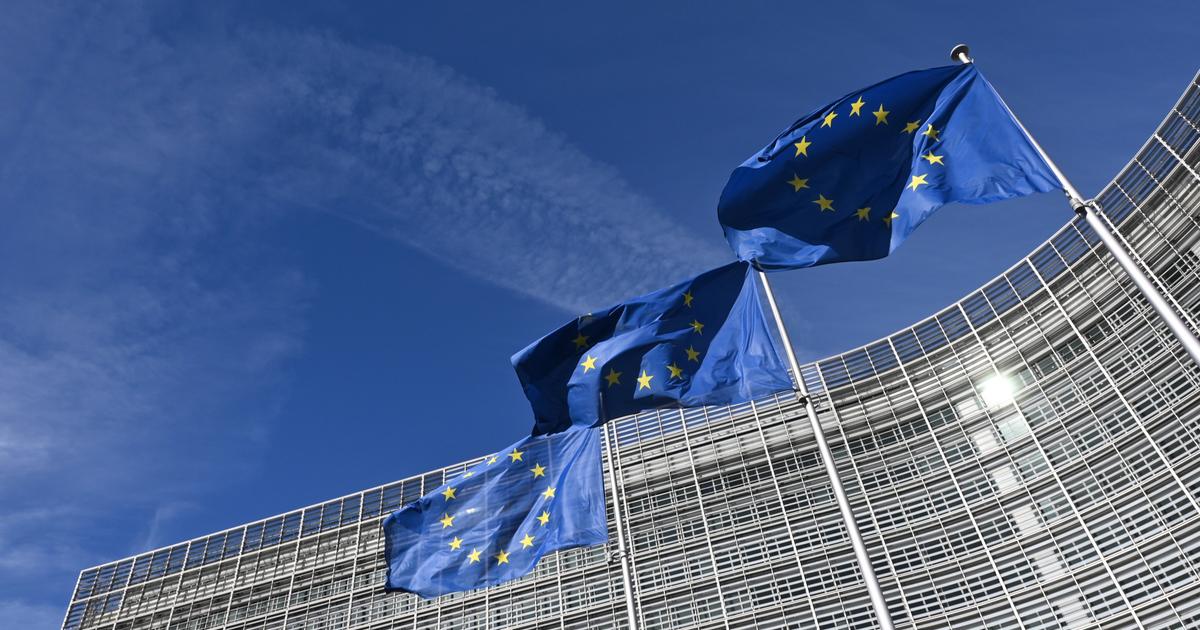Cyrille Dalmont is a specialist in digital ethical issues and director of research at the Thomas More Institute. He has just published the report “Will the European energy strategy get the better of the European digital ecosystem?”
To discover
PODCAST - Listen to the club Le Club Le Figaro Idées with Eugénie Bastié
The artificial intelligence commission, co-chaired by Anne Bouverot, president of Morpho, and the economist Philippe Aghion, submitted to the President of the Republic on March 13, a report containing 25 recommendations to make France a major player in artificial intelligence (AI).
After hundreds of expert hearings, she draws a gloomy, that is to say realistic, observation.
In any case more realistic than many public reports and the boastful positions of certain political leaders.
It highlights the state of disrepair of the European digital ecosystem as well as its more than worrying delay compared to the major digital players in other economic zones (the United States and China in the lead).
She also notes that
“the digital economy is two to three times weaker in Europe than in the United States”
as well as the fact that
“no real global European digital player has emerged between 2001 and 2022”
: of the
“100 technology companies with the largest capitalization at the end of 2023, only 10 are European”
and none are in the top ranks of this ranking.
She could have added that the situation is even more serious in the specific AI sector since out of the top forty global capitalizations, there are only two European companies (in 12th and 23rd place), both British - therefore outside the Union. European.
This effort at lucidity can be welcomed.
But it is still only half of the way.
Because the commission only partially makes the link, central to understanding the situation, between the EU's digital dependence on foreign technologies and its economic decline.
Indeed, the digital sector has been the engine of global growth for more than twenty years and today represents nearly 30% of the entire global stock market capitalization.
The analysis of the economic decline of the EU is not complete if its numerical decline, the result of European political choices over the past thirty years, is not properly assessed.
While other major global geoeconomic players consider digital technology as a strategic sector and implement instruments to protect and strengthen it, the EU has historically made the opposite choice.
Cyrille Dalmont
The decline in EU GDP, which began in the 1990s, continues to grow at an ever-increasing rate.
In 2022, the GDP of the EU was 17,320 billion dollars compared to 25,440 for that of the United States, a gap of 8,690 billion - which increased further in 2023 and is now close to 9,000 billion.
However, the United States has only 331 million inhabitants while the EU has nearly 447 million.
The consequences of this economic decline, resulting from technological decline, are very concrete for Europeans since, according to the World Bank, while in 1980 the GDP per capita of the French reached 101% of that of the Americans, it no longer rose in 2022 only 53.02% (and 49% for the EU as a whole).
To this first blind spot, the AI commission's analysis adds a second.
By proposing the creation of a “France & AI” investment fund and the mobilization of ten billion euros
“to finance the emergence of the AI ecosystem and the transformation of the French economic fabric”
, it moves to next to the very heart of the problem, which is on a completely different level.
To believe that France still has the instruments and means of action to pursue such a policy is illusory.
France no longer has this competence since it has delegated it to the EU.
Article 3 of the Treaty on the Functioning of the EU (TFEU) provides that the establishment of competition rules necessary for the functioning of the internal market and the common commercial policy are exclusive competences of the EU.
France simply cannot act sovereignly.
However, the entirety of European competition law is based on the idea that the fundamental objectives of EU rules consist of guaranteeing the proper functioning of the internal market for the benefit of the consumer, forgetting the tool of production, competition between global geographic areas and the interest of nations.
We are therefore faced with a systemic impossibility of pursuing a real policy of industrial and technological recovery.
It is this reality which precisely contributed to the disappearance or collapse of the old European leaders in the digital sector and prevented the emergence of new giants.
By not seeing this, the Bouverot-Aghion commission condemns itself to wishful thinking.
Read alsoDigital sovereignty: “Europe is suffocated by standards”
The observation, however, is unequivocal: while the other major global geoeconomic players consider digital technology as a strategic sector and implement instruments to protect and strengthen it (ultra-concentration, ultra-capitalization, agreements between companies, aid of state and reserved markets), the EU has historically made the opposite choice.
The IA Act regulation, which has just been adopted by the European Parliament, is a perfect illustration of this: by favoring a consumer-oriented approach, it neglects the productive tool and the European digital ecosystem.
Once again, the action of the European Commission only aims to regulate future foreign technologies coming to flood the European market.
It is time to understand that, without a profound reconsideration of European competition law, making it possible to free European companies from a normative straitjacket destructive to our economy, all of the proposals of the Bouverot-Aghion commission will not have the effect of which is to soften our planned digital downgrading and to train us in the use of American and Asian technologies.

